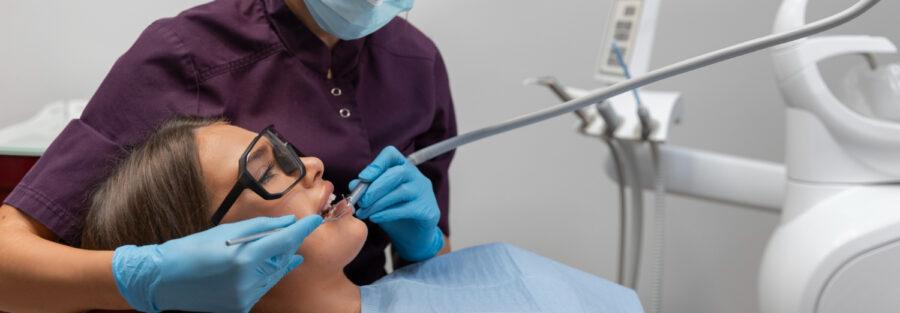The Role of Genetics in Dental Health: Exploring the Influence of DNA
Dental health is a multifaceted aspect of overall well-being, influenced by various factors ranging from oral hygiene practices to dietary habits. However, emerging research suggests that genetics also play a significant role in determining an individual’s susceptibility to dental issues. Phenotype and severity is dependent on the affected gene, the type and location of the mutations. This blog aims to explore the intricate relationship between genetics and dental health, shedding light on how DNA influences various aspects of oral health, from tooth development to the risk of dental diseases.
Genetic Determinants of Tooth Development:
Studies have identified several genes associated with tooth development, including those involved in enamel formation, dentin structure, and tooth eruption. Variations in genes like MSX1, PAX9, and AXIN2 can significantly influence tooth morphology and number during development.
KEY POINTS:
- Tooth development involves a series of intricate processes.
- Genes control key aspects such as:
- Initiation of tooth development.
- Morphogenesis (shaping).
- Histogenesis (tissue formation).
- Variations in genes like MSX1, PAX9, and AXIN2 influence tooth morphology and number.
Inherited Dental Disorders: Genetic mutations inherited from one or both parents can result in abnormal tooth structure, enamel defects, or missing teeth. Recognizing the genetic basis of these disorders is crucial for accurate diagnosis, treatment planning, and genetic counseling for affected individuals and their families.
KEY POINTS:
- Inherited disorders result from mutations in specific genes.
- Amelogenesis imperfecta:
- Mutation in genes encoding enamel matrix proteins.
- Leads to enamel defects and discoloration.
- Dentinogenesis imperfecta:
- Mutations affecting dentin formation.
- Results in translucent or discolored teeth prone to fractures.
- Hypodontia:
- Genetic variations causing absence of one or more teeth.
Susceptibility to Dental Diseases: Genetics also influence an individual’s susceptibility to common dental diseases such as dental caries (tooth decay) and periodontal (gum) disease. Studies have identified genetic variations associated with the risk of developing these conditions, including genes involved in immune response, saliva composition, and enamel mineralization. Understanding the genetic basis of susceptibility to dental diseases can inform personalized preventive strategies and targeted interventions to mitigate risk factors and promote oral health.
KEY POINTS:
Genetic predisposition contributes to susceptibility to:
- Dental caries:
- Genes influencing enamel mineralization (e.g., AMELX).
- Variation in saliva composition affecting bacterial growth.
- Periodontal disease:
- Genetic factors regulating immune response (e.g., IL-1 gene family).
- Genetic variations in collagen metabolism affecting gum tissue integrity.
Gene-Environment Interactions: Environmental factors such as diet, oral hygiene practices, and exposure to fluoride can modulate the expression of genes related to dental health. Moreover, epigenetic mechanisms, such as DNA methylation and histone modification, can dynamically regulate gene activity in response to environmental stimuli. Investigating gene-environment interactions is crucial for a comprehensive development of effective preventive and therapeutic approaches.
KEY POINTS:
- Environmental factors can modify genetic expression:
- Diet:
High sugar consumption interacts with genetic susceptibility to caries.
- Oral hygiene:
Poor oral hygiene exacerbates genetic predisposition to periodontal disease.
- Fluoride exposure:
Interacts with genetic factors influencing enamel mineralization.
- Epigenetic mechanisms:
- DNA methylation and histone modification can regulate gene expression in response to environmental cues.
Implications for Personalized Dentistry: Genetic testing may help identify individuals at increased risk of dental diseases or those predisposed to specific dental conditions, allowing for early intervention and personalized treatment strategies. Furthermore, insights into the genetic basis of dental traits can inform orthodontic treatment planning and cosmetic dentistry, enhancing outcomes and patient satisfaction.
- Genomic research enables:
- Identification of genetic markers associated with dental traits and diseases.
- Tailored interventions based on individual genetic profiles.
- Personalized dentistry:
- Early detection and intervention for individuals at high risk.
- Precision orthodontics and cosmetic procedures based on genetic predispositions.
- Enhanced treatment outcomes and patient satisfaction.
The influence of genetics on dental health is increasingly recognized, with growing evidence highlighting the role of DNA in tooth development, inherited dental disorders, susceptibility to dental diseases, and gene-environment interactions. By elucidating the genetic factors underlying oral health outcomes, researchers can pave the way for personalized approaches to dental care, promoting prevention, early intervention, and improved treatment outcomes.

